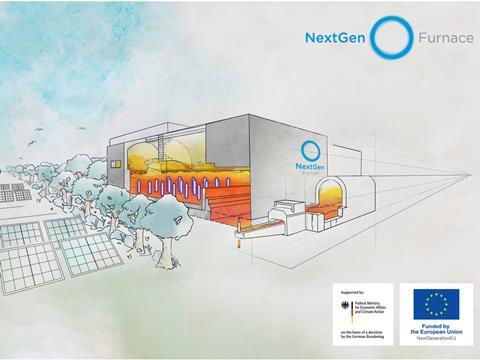
Ardagh Glass GmbH has announced that the large-scale NextGen hybrid furnace under construction at its Obernkirchen facility is close to completion.
Designed to use 80% renewable electricity and 20% gas, the furnace anticipates a reduction of CO2 emissions by up to 60%. As such, it is expected to drive down the carbon footprint of glass packaging.
High levels of recycled glass cullet are set to be used to produce up to 350 tonnes of glass bottles every day – initially in amber glass, although the furnace is said to be capable of making other colours.
At present, the furnace build, including all refractory brickwork, is complete. The installation of electrical and other ancillary services are now in the final stages, according to Ardagh.
“We are delighted to see this ground-breaking furnace nearing completion,” said Jens Schaefer, operations director, Ardagh Glass Packaging – Germany. “We are firmly on track to deliver commercial bottles produced in the NextGen furnace this year; the next step will be the furnace heat-up, followed by full glass production in Q4.
“I would like to thank all the AGP team, our suppliers and sub-contractors who have worked with such dedication and focus to deliver this exciting project.”
Construction of the NextGen furnace was announced earlier this year and was projected to commence operations later this year.
On another production line, Ardagh Glass Packaging’s facility in Doncaster, England, is being expanded with an ‘Efficient Furnace’, which is set to optimise the efficiency of the melter and lower both gas consumption and carbon emissions.
An additional partnership between Encirc and Diageo is set to result in net zero glass bottles at scale by 2030 with a new furnace set to reduce carbon emissions by 90% and offset the rest with carbon capture technology.
If you liked this article, you might also enjoy:
The Lidl approach to packaging sustainability
How did Brazil achieve its 100% aluminium can recycling rate – and can it be replicated in the EU?
Experts have their say on the EU’s Packaging and Packaging Waste Directive revisions
A deep dive into the most important packaging sustainability trends and solutions














No comments yet